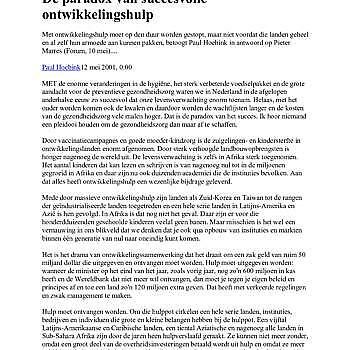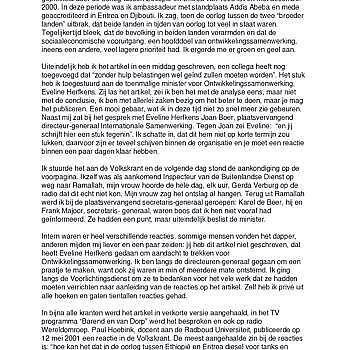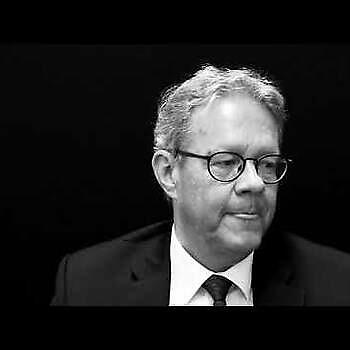Development Thinking
Herfkens was critical of Western development experts, advocating that "technical assistance" from wealthy countries should be limited to short advisory missions. As a result, organizations like the Dutch SNV underwent rapid transformation. Since the 1990s, SNV has primarily employed local experts, as they had a better understanding of local development processes.
Herfkens emphasized the importance of economics. Development cooperation should focus on creating conditions for economic development, such as improving governance in poor countries and promoting investments.
On the other hand, Herfkens championed fairer trade relations. Europe and the US protected their agriculture with high subsidies while simultaneously pressuring developing countries to open their markets to foreign companies. Herfkens argued that development cooperation was like trying to bail water out of a leaking boat; what was given with one hand was taken away with the other.
Development policy only makes sense if measures within the development policy are not undermined by measures from other ministries. Particularly from private development organizations, there was a call for such policy coherence.
During the same period of optimism about progress, the Millennium Development Goals were established at the international level. After extensive negotiations, it was agreed in a UN context in 2000 that global poverty should be halved by 2015, among other goals.
To achieve her goals, Herfkens formed a partnership with three other female ministers from Norway, Germany, and the United Kingdom, known as the Utstein Group. Together, they focused on combating poverty and promoting peace.
Civil Society Organizations
During Herfkens' tenure as minister, the co-financing field was opened up. In addition to the four 'pillar organizations,' Plan Netherlands and Terre des Hommes were also allowed to participate in co-financing.
In subsequent cabinet periods, many more organizations would benefit from this budget. The ministry had a significant influence on shaping the activities of these development organizations by setting both content and funding frameworks.
When a critical alter-globalization movement emerged worldwide from the late 1990s, which resisted the negative consequences of the neoliberal free trade model, it largely passed the Netherlands by.
Sources:
- Development Cooperation in bird's eye view
- Van wervelwind tot nachtkaars? Vier jaar Eveline Herfkens op Ontwikkelingssamenwerking, Paul Hoebink (2002), NICC collection, E00359
Extra:
- Eveline Herfkens has donated a part of her private collection to the NICC. These documents can be found through our Search Engine.
- Herfkens: Verkeerde aanpak hulp Afghanistan, Han Koch (2002), NICC collection, E00014
- Eveline Herfkens, Speeches en artikelen als Kamerlid (1981-1990), deel I, inhoud, Eveline Herkens (2020), NICC collection, E00401
- Eveline Herfkens, Speeches en artikelen als Kamerlid (1981-1990), deel II, inhoud, Eveline Herfkens (2020), NICC collection, E00403
- Krantenknipsels Nederlandse pers 1998 / persoonlijke selectie Eveline Herfkens, (), NICC collection, E00414
- Ending Global Poverty: four women's noble conspiracy, Constantine Michalopoulos (2020), Oxford University Press



